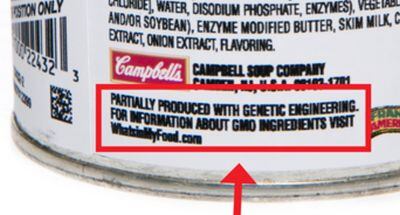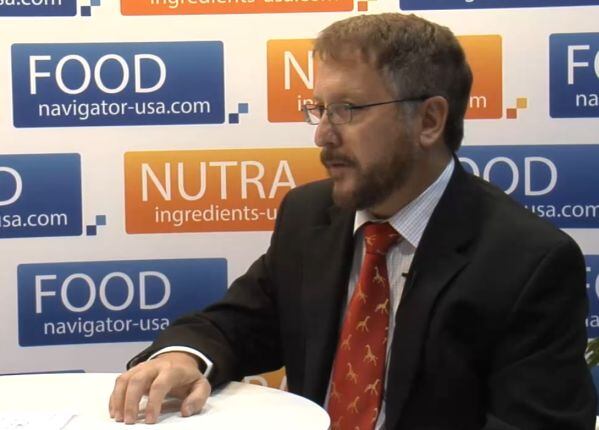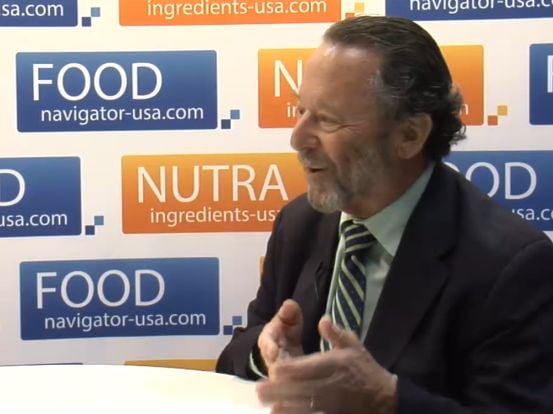The move comes as Campbell – along with many other food companies supplying products in multiple states – finds itself stuck between a rock and a hard place as the July 1 deadline approaches to comply with a GMO labeling law in Vermont, while a federal GMO labeling solution that all stakeholders can support has yet to be hammered out in Congress.
Until recently, Campbell – as a member of the GMA – had supported the Safe and Accurate Food Labeling Act (H.R. 1599), which would pre-empt state laws that mandate GMO labeling and set up a federal voluntary 'non-GMO' labeling system run by the USDA.
While this bill has passed in the House of Representatives, however, a companion bill has not passed in the Senate, and time is running out, said Campbell CEO Denise Morrison, who said “Campbell has been actively involved in trying to resolve this issue since 2011.”
We’re in no way disputing the science behind GMOs or their safety
She added: “We now believe that proposing a mandatory national solution is necessary. Printing a clear and simple statement on the label is the best solution for consumers and for Campbell.”
However, she stressed that “we’re in no way disputing the science behind GMOs or their safety,” and that “the overwhelming weight of scientific evidence indicates that GMOs are safe and that foods derived from crops using genetically modified seeds are not nutritionally different from other foods.”
While Campbell will stay in the GMA, she said, it is now “withdrawing from all efforts led by groups opposing mandatory GMO labeling legislation, including those led by GMA”.

"Campbell Soup advocates for federal legislation that would require all foods and beverages regulated by the Food and Drug Administration (FDA) and the U.S. Department of Agriculture (USDA) to be clearly and simply labeled for GMOs. Campbell is also supportive of a national standard for non-GMO claims made on food packaging.
"The company continues to oppose a patchwork of state-by-state labeling laws, which it believes are incomplete, impractical and create unnecessary confusion for consumers." The Campbell Soup Company
Campbell is prepared to label all of its US products
So what happens next?
Right now, the company is optimistic that a “federal solution can be established in a reasonable amount of time if all the interested stakeholders cooperate”, said Morrison.
“However, if that is not the case, Campbell is prepared to label all of its US products for the presence of ingredients that were derived from GMOs, not just those required by pending legislation in Vermont. The company would seek guidance from the FDA and approval by USDA.”
Asked if Campbell would still apply GMO labeling to its products if the GMA-backed Safe and Accurate Food Labeling Act becomes federal law (which would mean it wouldn't have to label products as GMO in Vermont or anywhere else), a spokesman told FoodNavigator-USA: "Yes, we will still label."

"Campbell has been actively involved in trying to resolve this issue since 2011. We’ve worked with GMA, legislators and regulators to forge a national voluntary solution. We’ve engaged a variety of stakeholders, from lawmakers to activists. I’ve personally made multiple trips to Capitol Hill to meet with elected officials. Despite these efforts, Congress has not been able to resolve this issue. We now believe that proposing a mandatory national solution is necessary."
Denise Morrison, CEO Campbell Soup
Reaction to the move
All eyes will now be on leading CPG rivals to see if they follow suit, with Morrison predicting “a mixed bag” of reactions, given how politically charged this issue has become, and how much money leading food companies have spent so far to defeat mandatory GMO labeling initiatives.
The GMA told FoodNavigator-USA that it "respects the rights of our individual member companies to communicate with their customers in whatever manner they deem appropriate”, but said that there were other tools to “provide consumers with the information they need to make informed product choices” such as the new SmartLabel initiative.

"Technology, including biotechnology, brings immeasurable benefits to consumers and society, but broad public support for technology will increasingly depend on the level of transparency and consumer engagement by those in the food system.
“We not only support Campbell Soup’s decision to label but also to participate in the new SmartLabel program, which addresses a broader list of issuesm, because the link between transparency and trust is real, direct and powerful. Consumers have a right to know where their food comes from and how it’s produced so they can make informed decisions.” Charlie Arnot, CEO, Center for Food Integrity
Move sends a clear message to Monsanto and the GMA, says OCA
Not surprisingly, anti-GMO activists claimed the move as a victory, despite Campbell’s remarks about the safety of GMOs, with Just Label It, the Environmental Working Group and the Organic Consumers Association (OCA) all issuing statements applauding the announcement.

The OCA said the move “sends a clear message to Monsanto and the GMA”, while Just Label It said Campbell’s move took supporters of mandatory GMO labeling “closer to reaching that goal [of a federal mandatory GMO labeling law].”
A Devil's bargain?
However, Dr Wayne Parrott, professor of crop science at the University of Georgia, told FoodNavigator-USA that Campbell Soup had struck a “Devil's bargain: A short term market protection at the expense of future products.”
He added: “It also makes the implementation of sustainable agricultural practices more difficult. I really wish companies would try consumer education instead.”
Professor: Such decisions are, however, not without their costs
Dr Bruce Chassy, professor emeritus of food science at the University of Illinois at Urbana-Champaign, meanwhile, told FoodNavigator-USA: "It’s a business decision and each company has its own internal reasons for doing what it does. I’m sure the great majority of food companies just want to put this issue behind them. None wants to be viewed as hiding information from consumers.

"Such decisions are, however, not without their costs. Those costs will be passed on to all consumers whether or not they care about the issue."
In an article in the Huffington Post co-authored by Jon Entine, executive director of the Genetic Literacy Project, Dr Chassy added: "Studies have suggested that some consumers may regard the mandatory GMO label as a safety warning. After all, why would government mandate a label on food if they weren't trying to warn us of something?
"If a label is ultimately approved, those ideologically opposed to GM foods and crops would likely quickly transmute their "right to know" effort into a massive campaign to associate that label with health dangers and ecological disaster."
More reaction to follow...
